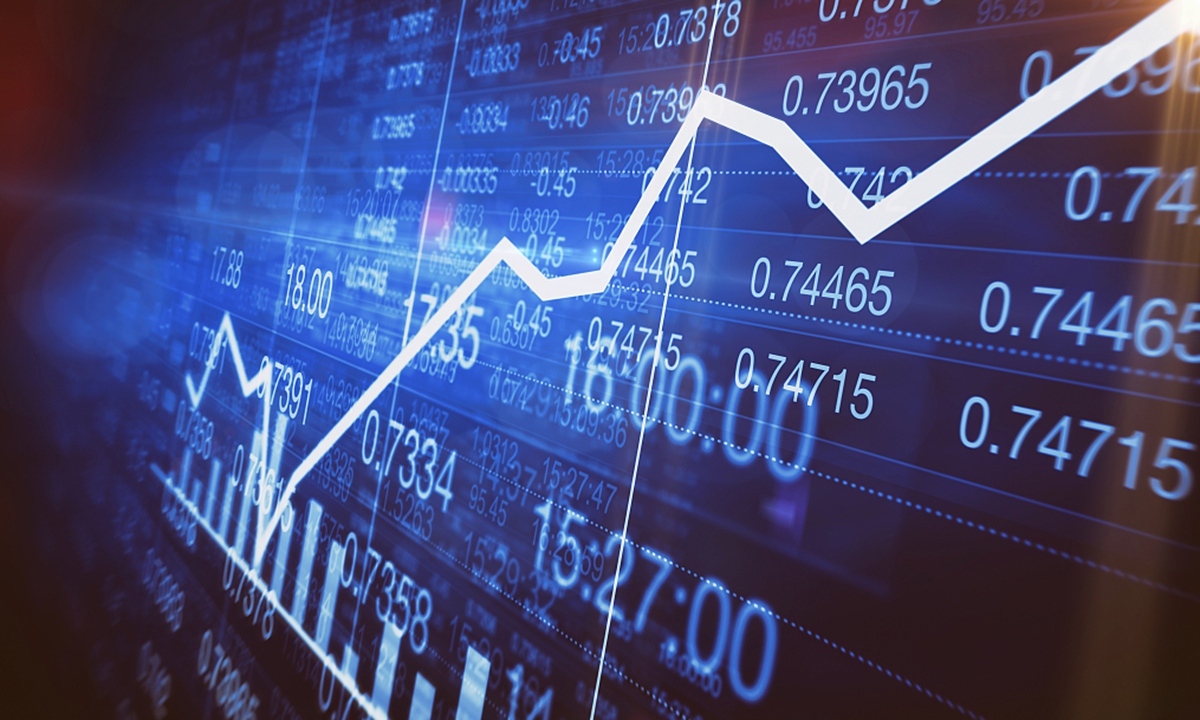
stock market Photo:VCG
China's stock markets continued to fall on Tuesday, with major indexes hitting the lowest point this year, weighed down by outside turbulence and domestic coronavirus outbreaks.
The blue-chip CSI300 index fell 2.01 percent to 4,265.39 points at the end of Tuesday trading, while the Shanghai Composite Index was down 2.35 percent. The Shenzhen Component Index lost 2.62 percent, and the China Growth Enterprise Market was down 1.8 percent. The Hang Seng index dropped 1.39 percent to 20,765.87 points.
The trade value in the Shanghai and Shenzhen markets reached 1,109.9 billion yuan ($175.69), 95.3 billion yuan more than in the previous session. A total of more than 4,100 stocks fell on Tuesday with nearly 100 stocks falling by the daily limit of 10 percent.
Stocks related to China's East-to-West computing resource transfer project gained, as did those in the precious metals sector, while the big losers were COVID-19 treatment, assisted human reproduction (AHR), Traditional Chinese Medicine, planting and Forestry, and lithium extraction stocks.
The Securities Times said in a commentary on Tuesday that China's policies to stabilize economic growth could build a solid bottom line for the country's A-share markets after China's blue-chip index closed at the lowest level since July 2, 2020 on Monday.
The sharp plunge in the A-share market has been closely associated with turbulence in the international capital market, analysts said.
The Ukraine crisis has driven up the prices of crude oil, natural gas and gold and investors have become more risk-averse, driving up inflation and sparking fears of global stagflation, Yang Delong, chief economist at Shenzhen-based First Seafront Fund Management Co, told the Global Times on Tuesday.
"The latest plunge has caused panic among investors but China's economic fundamentals are still solid and healthy," Yang said.
The government work report set an annual growth target of 5.5 percent for the year, aiming to achieve steady economic growth through proactive fiscal policy and loose monetary policy, Yang noted, adding that infrastructure investment is likely to expand.
From the perspective of economic fundamentals, the biggest uncertainty lies in the impact of COVID-19 on consumption and normal economic activity, Yang said.
It will be important to implement scientific and precise epidemic prevention and control measures, as pointed out in the government report, he added.
